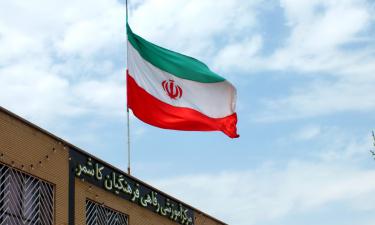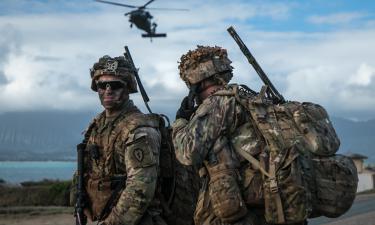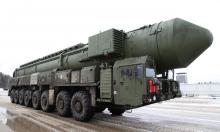J. David Galland: Intelligence Failure or Political Status Quo
As we approach a point of healing after the attacks on Sept. 11th, many questions remain unanswered. The big question is, why did our intelligence services fail to provide the reliability and continuity that would have helped prevent the aircraft hijackings and suicide attacks? Even before the carnage had stopped, politicians, community leaders, journalists and other gifted visionaries were quick to find fault with U. S. intelligence agencies. A whiplash style response, in an attempt to fix blame, was instant. The conflagration was rapidly determined to be a gross intelligence failure of epic proportions.
So lacking were the intelligence services, in the estimation of many politicians, that one would think that counter-espionage officials in the CIA, our premier intelligence agency, had been sitting around, half drunk or snoozing in their chairs. This is, unfortunately, not an entirely inaccurate description of their level of performance. But the overall responsibility does not fall on those who should have been down in the trenches, proactively ferreting out intelligence information. Who's minding the shop? Who is out there, late at night, in lousy weather, with the individuals who have the potential to provide human intelligence? Not the CIA. Why, because they are too busy attending sensitivity training. The management of the CIA has wasted thousands of hours by requiring employees to attend workshops so they could make politically correct diversity quilts. Why do idiotic things like this happen?
The intelligence community has had its hands shackled since the mid-1970s, when the Church and Pike Committees in Congress cleaned out the CIA's covert-action capability. The strategy of CIA detractors at that time was to emasculate the agency. In reaction to disclosures of Cold War-era operations including attempted assassinations of foreign leaders and domestic surveillance of anti-Vietnam War groups, liberal politicians in the name of reform succeeded in hamstringing the U. S. intelligence community. Today, a quarter-century later, the damage of their over-reaction is sadly evident. It is galling to me that those who engineered and later celebrated the gutting of the intelligence community's valuable capabilities are in great part the same ones who are deriding the loss of thousands of lives at the World Trade Center and the Pentagon as an intelligence failure.
In 1976, President Gerald Ford named President George W. Bush's father the new Director of Central Intelligence. He was on the right track to revive the agency, but did not last long. Following President Jimmy Carter's inauguration, Bush was replaced in early 1977 by retired Admiral Stansfield Turner.
Turner arrived with a mandate from Carter who had a prejudiced predisposition against intelligence and intelligence services to hamstring the CIA and render it impotent. Not surprisingly, mass retirements were the order, some involuntary. Turner retired almost all of the Middle East experts who spoke Farsi and other regional languages of Southern and Central Asia. The CIA director went further on Carter's instructions simply fired a great many of its human intelligence (HUMINT) assets.
Prior to Turner's appointment, the CIA had largely built up a HUMINT network throughout Central Asia. It was designed to be used to support guerrilla forces that were battling the Soviet Army in Afghanistan. Following the Soviet pullout from Afghanistan in the late 1980s, the CIA then terminated almost all of its Afghan focused HUMINT relationships and initiatives. a major blunder. This left the agency fumbling in an unstable and fast-moving region that was a breeding ground of terrorist training networks.
Problems exist because the CIA today normally operates out of U. S. embassies abroad. Clandestine CIA officers operate under the cover of successful American or foreign businessmen. With their Brooks Brothers suits and Bostonian shoes they don't mix well with the locals in the smoky mud houses and the fly-infested environment. Furthermore, almost nobody in the CIA today has a native fluency level in the target languages of the area, to say nothing of the absence of cultural experience and ethnic backgrounds.
This constitutes a major operational shortcoming on the part of an intelligence agency that ought to be pursuing clandestine operations through false fronts and deception operations. The erosion of the U. S. intelligence apparatus continued throughout the eight years of the Clinton administration. While President Clinton was apparently distracted by domestic issues and, later, the Monica Lewinsky scandal, the morale of the intelligence community dropped to an all-time low. Clinton's first CIA director, James Woolsey, has admitted that Clinton either did not have time, or the requisite interest in him and his agency. Woolsey has gone on record that he only met twice personally with Clinton in the two years of his tenure
Woolsey was subsequently replaced by MIT physicist, John Deutsch, who delivered more crippling blows to the CIA and clandestine operations. Under Deutsch, what was left of morale in the agency dropped even further. Deutsch later was forced to leave his post in disgrace and embarrassment in 1996 after revelations he had violated security rules dealing with highly classified materials.
The war against terrorism will be nasty, brutal and violent and not just in our bombing campaign in Afghanistan. Throughout history, U. S. intelligence agencies have by ugly necessity paid sleazy and unsavory characters to steal things, to betray friends, bosses, and colleagues, and to usurp all allegiances for cold cash.
If this nation is determined to get the rats out of the basement, we will have to go down there and get them and, yes, we may get a little dirty doing so. But it is clear in the current crisis that we need both to revive the covert-action capabilities of the CIA.
J. David GallandMr. Galland is a contributing columnist to "The Reagan Information Exchange", Colonel David H. Hackworth's "Defending America", column and website, as well as "PRAVDA" (English Version) The Voice of The West in Russia. Mr. Galland is a guest columnist for The British Broadcasting Company, (BBC) also, he is published worldwide, via "The Houston Independent Media Center". J. David Galland is the Deputy Editor of "Defense Watch", Visit to &to=http://www.sftt.org' target=_blank>http://www.sftt.org , and the Founder and President of "Bound & Overwatch-The Military Observer", Visit to &to=http://www.boundandoverwatch.com. target=_blank>http://www.boundandoverwatch.com.
Subscribe to Pravda.Ru Telegram channel, Facebook, RSS!




